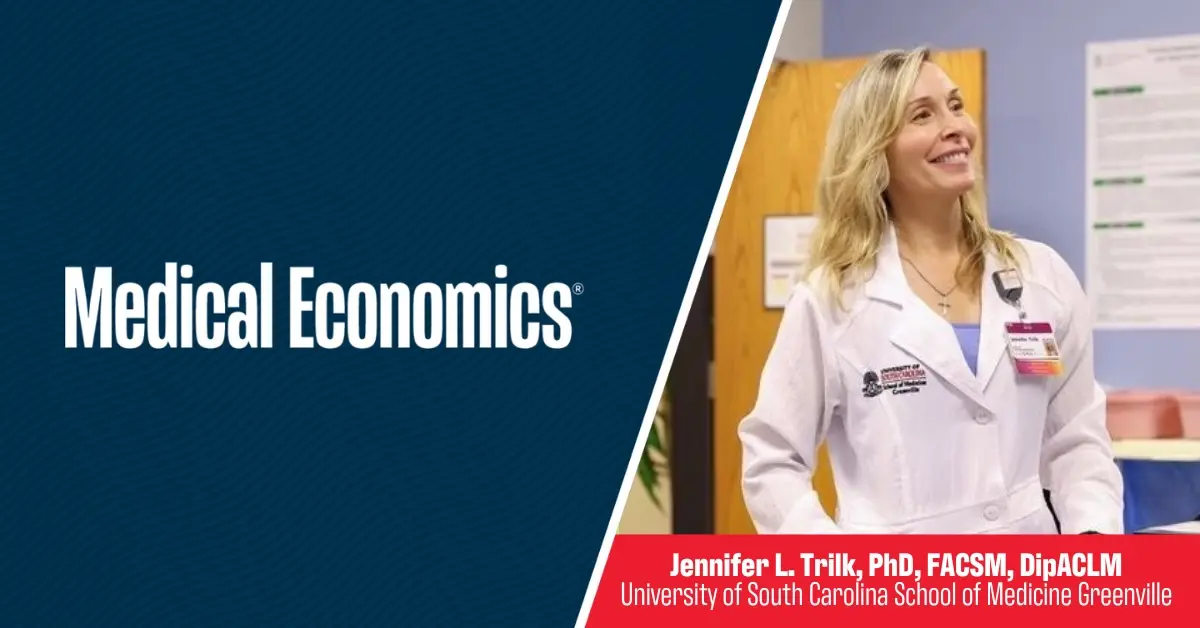
Nutrition in medical education: Lifestyle medicine vs. conventional medicine
How did your country report this? Share your view in the comments.
Diverging Reports Breakdown
Nutrition in medical education: Lifestyle medicine vs. conventional medicine
Lifestyle medicine is a specialized approach that creates a physician-patient team to make decisions to improve the health of the patient. The School of Medicine Greenville at the University of South Carolina teaches this approach. Jennifer L. Trilk, PhD, FACSM, DipACLM, is a professor of biomedical sciences and director of the Lifestyle Medicine Program. She is a co-author of “Proposed Nutrition Competencies for Medical Students and Physician Trainees: A Consensus Statement,” published in JAMA Network Open. The authors’ goal was to recommend nutrition competencies in medical education to improve patient and population health..
Trilk is a co-author of “Proposed Nutrition Competencies for Medical Students and Physician Trainees: A Consensus Statement,” published in JAMA Network Open. The authors’ goal was to recommend nutrition competencies in medical education to improve patient and population health. She is the co-founder of the Lifestyle Medicine Education Collaborative, which has published free medical education curriculum materials on lifestyle medicine.
Medical Economics: With lifestyle medicine, where exactly does it fit into the contemporary U.S. healthcare system?
Jennifer L. Trilk, PhD, FACSM, DipACLM: That is such a fantastic question, and that’s, again, something that I teach the students. What is the difference with conventional medical education and conventional medicine, with lifestyle medicine? And conventional medicine is very much the root of it is starting at the disease, and what are the ways to treat and manage the symptoms of chronic disease? Let’s say, you know, Type 2 diabetes, for example, if a patient is diagnosed with Type 2 diabetes, what from a from a medication perspective, keeps their blood glucose regulated, and keeps that down, and then also helps reduce risk of cardiovascular disease and cancers, because we know that Type 2 diabetes is a very inflammatory process in the body, it sets up very high risk for our other chronic conditions. We know that cancer and cardiovascular disease are primarily the two top diseases that cause mortality in the United States, and Type 2 diabetes is a high risk factor for that. Where the conventional medicine starts at the disease lifestyle medicine starts at the root cause of disease, so it starts further upstream, and says, what exactly are the lifestyle behaviors, the dietary related patterns that cause this chronic condition? And the students learn that. Another way is looking at, the conventional medicine is, it’s really the doctor’s responsibility to treat and manage this patient. Lifestyle medicine is, it’s a shared decision-making process between the doctor being that patient’s biggest advocate, their biggest cheerleader, and taking the time to talk with the patient and utilizing behavioral theories like motivational interviewing to see where the patient is and their steadiness and their readiness to change, to see if they’re wanting to change, to see what aspects of their lifestyle that they’d want to change. They may not want to walk into a gym, but we may be able to reduce sodium content in their meals. Soreally meeting that patient where they are, and having that shared decision-making process so that it’s a team effort, rather than the doctor’s responsibility. And there was a paper that came out in 2023 demonstrating that physicians who practice lifestyle medicine have less, far less, burnout than physicians that do not practice lifestyle medicine and are in that, conventional area of treatment, that health care system.
